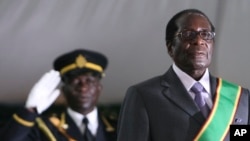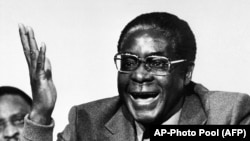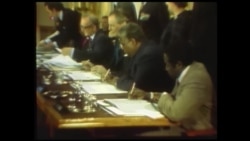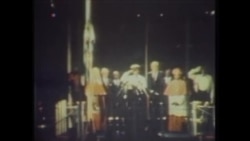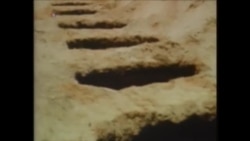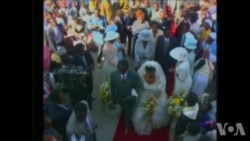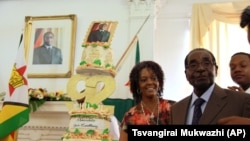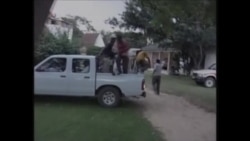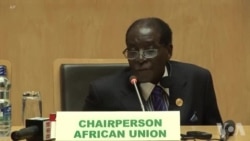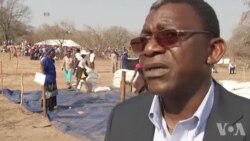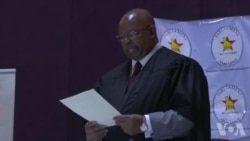Life and Legacy Robert G. Mugabe
Life and Legacy: Robert Gabriel Mugabe
The former President of Zimbabwe, Robert Gabriel Mugabe, who dominated the country’s politics and world stage for more than 37-years after its independence died at the age of 95.
Born February 21, 1924 at Kutama Mission, Zvimba, Mashonaland West, former President Robert Mugabe passed away September 6, 2019 in Singapore. He is survived by wife, Grace Mugabe (nee Marufu), and children Bona Mugabe-Chikore, Robert Peter Mugabe Jr. and Chatunga Bellarmine Mugabe.
Liberation Struggle
While Mugabe was teaching abroad, an anti-colonialist African nationalist movement was established in Southern Rhodesia. It was first led by Joshua Nkomo's Southern Rhodesia African National Congress, founded in September 1957 and then banned by the colonial government in February 1959.
Lancaster House Agreement, December 1979
Liberation movements - Zapu and Zanu - met with British officials and others in London to craft a ceasefire agreement known as the Lancaster House Conference. Robert Mugabe, Joshua Nkomo, Bishop Abel Muzorewa and Ian Douglas Smith are among the people who attended the conference.
Independence, April 1980
Night shots of the British Flag being lowered and the Zimbabwean flag being raised at the Independence Ceremony, Rufaro Stadium, Harare, April 18, 1980
Gukurahundi Atrocities
In 1987 Robert Mugabe signed a Unity Accord with Joshua Nkomo, leader of the opposition Zimbabwe African People’s Union, to end a bitter conflict in the Matabeleland and Midlands Provinces in the early 1980s which left an estimated 20,000 people dead.
Marriage to Grace Mugabe
Opposition Politics
Zimbabwe's Movement for Democratic Change led by Morgan Tsvangirai was formed in 1999 from a broad spectrum of civic society groups fed up with the deteriorating economic situation in Zimbabwe. One of the top groups in the coalition was the Zimbabwe Congress of Trade Unions in which Tsvangirai was once the secretary general.
Land Reform Policy
While applauded by some, Mugabe faced much criticism internally, with many attributing the country’s economic downslide that ushered in record hyperinflation, closure of industries and mass exodus of citizens to foreign countries, to the land reform exercise.
To the end, Mugabe defended his decision to embark on the aggressive land reform exercise in 2000, that forcefully removed an estimated 4,000 white commercial farmers from lucrative pieces of land, on which black Zimbabweans were merely workers, not owners.
Sanctions
In reaction to the forceful land grabs at the time, as well as allegations of human rights violations and rigged elections, western countries led by Britain and the United States took steps to isolate Zimbabwe, and impose sanctions, which remain a major source of debate.
“We say sanctions are wrong because they are not based on any valid grounds at all.”
In retaliation to the sanctions, Mugabe declared a counter-attack against the West, by embarking on an indigenization program that outlawed foreigners from owning majority stakes in any company.
2000 Referendum
Zimbabwe held a constitutional referendum in February 2000 in which the ruling Zanu PF party led by Robert Mugabe was soundly defeated. Mugabe's party was looking for a yes vote while civic society, including the National Constitutional Assembly, opposed the adoption of a new constitution, which was widely seen as favoring the interests of Zanu PF. The proposed constitution gave the government power to seize commercial farms owned by white farmers without compensation. The defeat resulted in the land grabs of the year 2000.
2008 Elections
In 2008, the late Movement for Democratic Change leader Morgan Tsvangirai defeated Robert Mugabe in a presidential election that lacked the threshold for him to form a new government. A presidential election re-run was abandoned after Tsvangirai's supporters were butchered by state security agents.
Government of Nation Unity
2013 Elections
Robert Mugabe ruled Zimbabwe for more than 37 years before he was removed from office through a defacto coup. He died a bitter man, claiming that he was forcibly removed from power by Emmerson Mnangagwa and the Zimbabwe Defence Forces.
Military Action
Major General Sibusiso Moyo: This is Not A Coup
“What the Zimbabwe Defence Forces is doing is to pacify a degenerating political, social and economic situation in our country which if not addressed may result in a violent conflict … To members of all defence forces all leave is cancelled and you are all to return to your barracks..."
Resignation
The late former President Robert Mugabe resigned on November 21, 2017. House Speaker Jacob Mudenda made the announcement while legislators were impeaching him. Mr. Mugabe said he was resigning as per the provisions of the country’s constitution.
“I Robert Gabriel Mugabe in terms of Section 96 subsection 1 of the Constitution of Zimbabwe hereby formally tender my resignation as the president of the Republic of Zimbabwe, with immediate effect,” read the letter presented in the House of Assembly by Speaker Jacob Mudenda.
In one of his rare appearances after the resignation, the visibly-aged and weakened Mugabe, expressed anger and dismay at his ouster from the party he led before and after independence from British rule.
Legacy: Founding Father
While the fallout with his party resulted in his isolation and confinement to his mansion in Harare, Mugabe maintained the respect of his fellow Zimbabweans. At various times after facilitating his removal, Mnangagwa still recognized him as the country’s founding father.
“He is the one we refer to as the founding father of the nation of Zimbabwe. He is our founding father of free Zimbabwe.”
The respect extends even to political rival, MDC leader Nelson Chamisa, who, following the announcement of Mugabe’s resignation, acknowledged Mugabe’s contributions.
“We must give him the respect. He did so much for us, as a people, but he also did bad things but we must not amplify the bad things he’s done. Let’s look at the good he has done, let’s look at the bad, we correct them and move forward as a country.”





